
Prague Stories by Rilke

Hello, kind readers. Every day, since @velimir has shared images about Prague, I've really wanted to talk about that city. Prague has become a familiar place, a point of reference, in the space that many writers have used to set their stories. In fact, when I hear about Prague or read about it, I can't help thinking about Kafka or Kundera, but today I'm going to refer to another well-known writer born in Prague: Rilke.
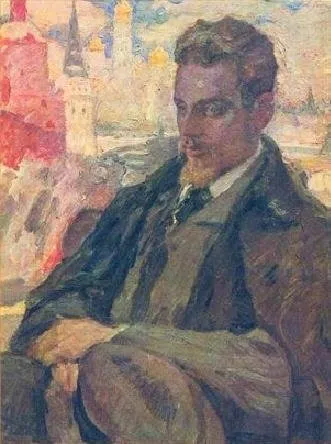
As we all know, Rainer Maria Rilke was a writer born in Prague in 1875 and is known as one of the most important poets of universal literature of the first half of the twentieth century. Although his poetic work is more recognized than his narrative work, his prose texts also have much merit. His poetic work is fundamental, and Duino's Elegies and Orpheus Sonnets arouse special interest. His narrative works include Notebooks by Malte Laurids Brigge and Letters to a Young Poet , in which he considers that writing is not an occupation, but rather an instinct that comes from the bowels whose roots "extend to the deepest part of the soul". But today we will not speak of his poetry, today we will speak of a book consisting of two stories: Stories of Prague.
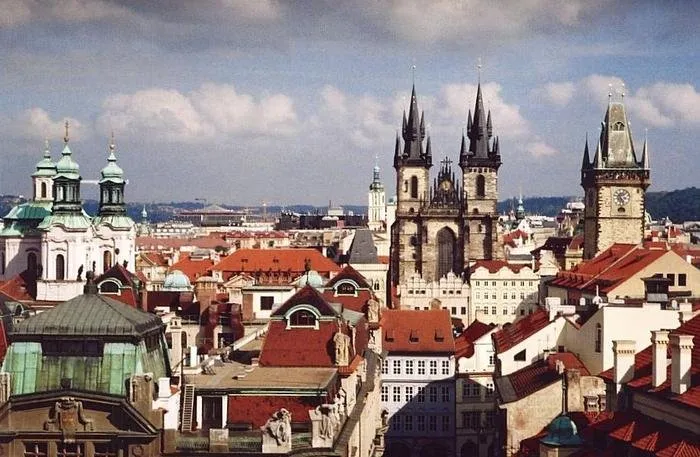
Prague Stories is a book composed of two stories: King Bohusch and The Brothers. Today I would like to deal with the story King Bohusch. This is a story about a hunchback, Bohusch, who after feeling inferior to almost everyone else, begins to feel that he can do and accomplish many things. This way of thinking leads him to act erratically, behavior that will be definitive and lethal for him. It all begins with the meeting of several people, including a writer, a poet, an actor, a student, in a café. It seems that the least important person is precisely Bohusch, who is ironically called king. In this first encounter, we characterize each character and see that the hunchback is introverted, with much pain to express their feelings and opinions. In this encounter, it is the other characters who make themselves heard and express their ideas.
As he leaves the café, Bohusch walks with the student Rezek through the dark streets of Prague. Taking the Tower of St. Vitus as the stage, the hunchback begins to talk about the structures in his environment and their permanence in time. But the way he mentions Prague is surprising:
I know my mother Prague to the heart, to the heart," he repeated as if someone had doubted his assertion.
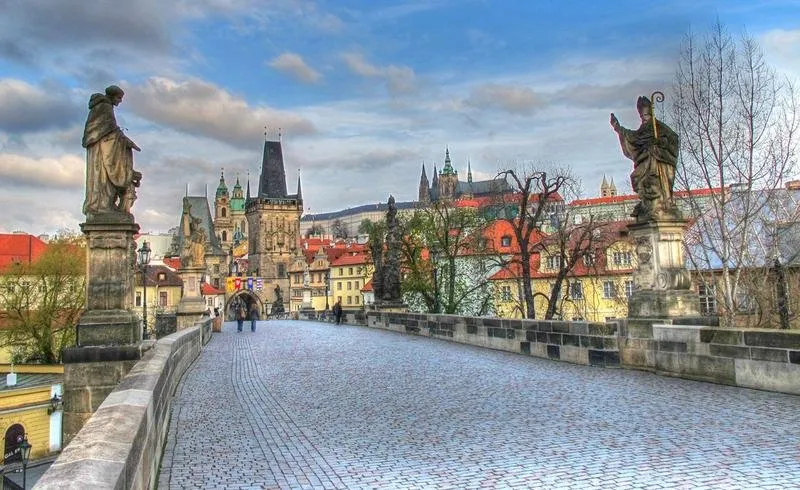
And he starts talking about the number of buildings in Prague that have hidden clandestine basements and buildings that very few people know about. With this intervention we see how Bohusch sees his city: he calls it "his mother", and with this expression we can feel closeness, knowledge, but also a lot of love. In this first conversation between the hunchback and the student, the latter only pays attention to what he says about the hidden places that very few know, so he asks for more information. Bohusch talks to him about a particular place that is in his house and that nobody knows. After this, Rezek shows interest in continuing to talk to the hunchback and asks him to return to the café, while the hunchback reminds him that they have already been there talking to each other. To which the student responds:
...it's you I want to talk to, Bohusch, not those great gentlemen, those artists.... I wish these people were proud of the people. But believe me, they don't know anything about each other, or their people.
This comment, made very vehemently by Rezek, makes the hunchback feel important and recognized, and he begins not only to look at his interlocutor in a different way, but to look at himself in a different way. We must also point out the meaning of the words pronounced by the Rezek, in which he speaks of the lack of empathy between the writers and the city. According to him, artists are called to write about their hometown, countries, to make them known. The work of the artists must allow us to know and understand the peoples; to record history, the changes that have taken place over time. And he says that unlike what Bohusch may feel for Prague, others do not think or feel his hometown so close:
We are no longer at home here in Bohemia. We have our homeland somewhere unknown, I don't know, at the origin of life.
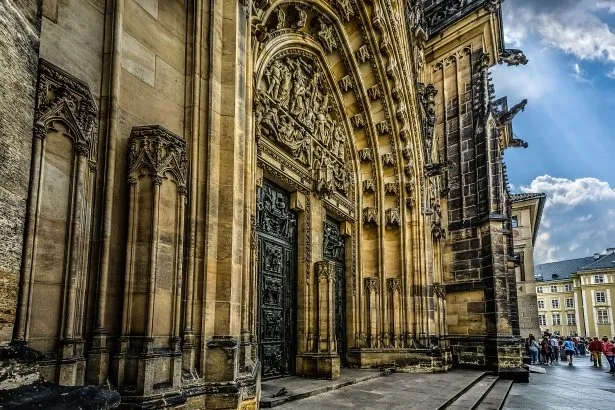
These words make Bohusch think that he has always had the wrong impression of the student, he would have thought it silly, simply to keep silent within the conversations in the cafe. This same thought applies to him and he understands that silence could have made him pass for a fool too and from that moment on he promises to express himself. So he says:
Sometimes I have thought the same thing. Why do you paint this and not that? Why is it written like that and not in any other way...? However, if you allow me to make the observation that the poets say nothing about Hradschin or Teyn, it doesn't matter, it doesn't matter..... I know my mother Prague from the heart, yes, and no poet has said anything to me.
As we can see, this encounter and these fortuitous words come to create in the hunchback not only the need to communicate, but also the awareness of what it means to speak, to manifest what we think and feel. Moreover, in order to love and know a place, in this case Prague, it is not necessary for writers to write about it, the essential thing is to feel it, to suffer it.
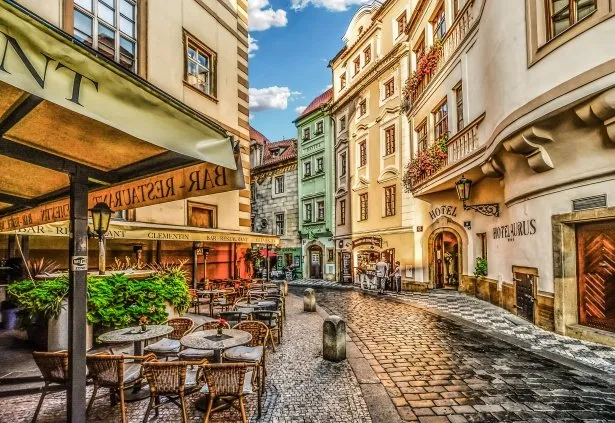
As a result of this encounter, two things happen that are fundamental in the development of history. On the one hand, Bohusch leads the student to know a secret passage, which will be used by the student later, in a clandestine way, as a refuge for political meetings. And on the other hand, Bohusch stops his shyness and starts trying to express everything he feels to everyone. As he talks to himself, he says, "I know what you mean. You are an ugly man. But start talking. Talking beautifies.
Bohusch's need to speak and be heard makes him ask the student for the opportunity to speak at his political meetings, and from these meetings the true personality of the hunchback begins to emerge:
Since then, Bohusch has not slept. He waited day and night for Rezek to call him, and thought of everything he wanted to say... but always, whatever the subject of his speech, he saw himself as the center of this group, as the teacher whom the beautiful Carla and many strong young men blindly obeyed. He felt like the one who has been unjustly ignored for a long time and who finally gains his rightful place and advances through the limits of his time.
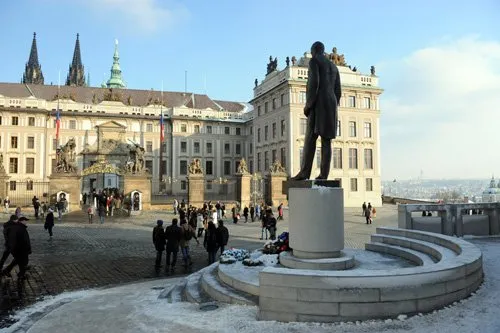
In the above quote we observe the restless life that the hunchback begins to live, but in the same way, the resentment and feeling of inferiority that could have lived in him for so many years. This bitterness for having been rejected before, makes him write a letter to a woman, Frantischka, to invite her to his house, because he wants to give her a private speech and as if that were not enough, seeking her admiration, he tells her what he has been doing clandestinely. The result occurs when this woman delivers the letter to the government and the government imprisons many people for rebels. The hunchback who is not imprisoned returns home and there the student arrives and kills him with his own hands.
With this story we think about many things. For example, talking may be more subversive than thousands of cartridges; it may be necessary, but it is also necessary to remain silent. Behind many political discourses is the seed of discontent, which can sometimes be dangerous. We also see the background, the social, the political and the artistic. Art, especially writing, is the most valuable experience that human beings have created to understand themselves. The social function of art evolves from contemplation to interpretation and becomes forms of knowledge. I think that behind the words the student says to the hunchback about artists and Prague is the exhibition of a reality, but also Rilke's veiled opinion about how to take on art in an age.
I hope you were interested and liked this position. Remember to vote for @adsactly as a witness and join our servant in discord. See you next time with a smile.;)

Bibliographic References
https://es.wikipedia.org/wiki/Rainer_Maria_Rilke.
Rainer Maria Rilke (1992). Stories from Prague. Montesinos: Barcelona - Spain.
Written by @nancybriti
Click on the coin to join our Discord Chat

Witness proposal is here:
Go To Steem Witness Page
In the bottom of the page type: adsactly-witness and press vote.

Use small letters and no "@" sign. Or, click here to vote directly!
Thank you!